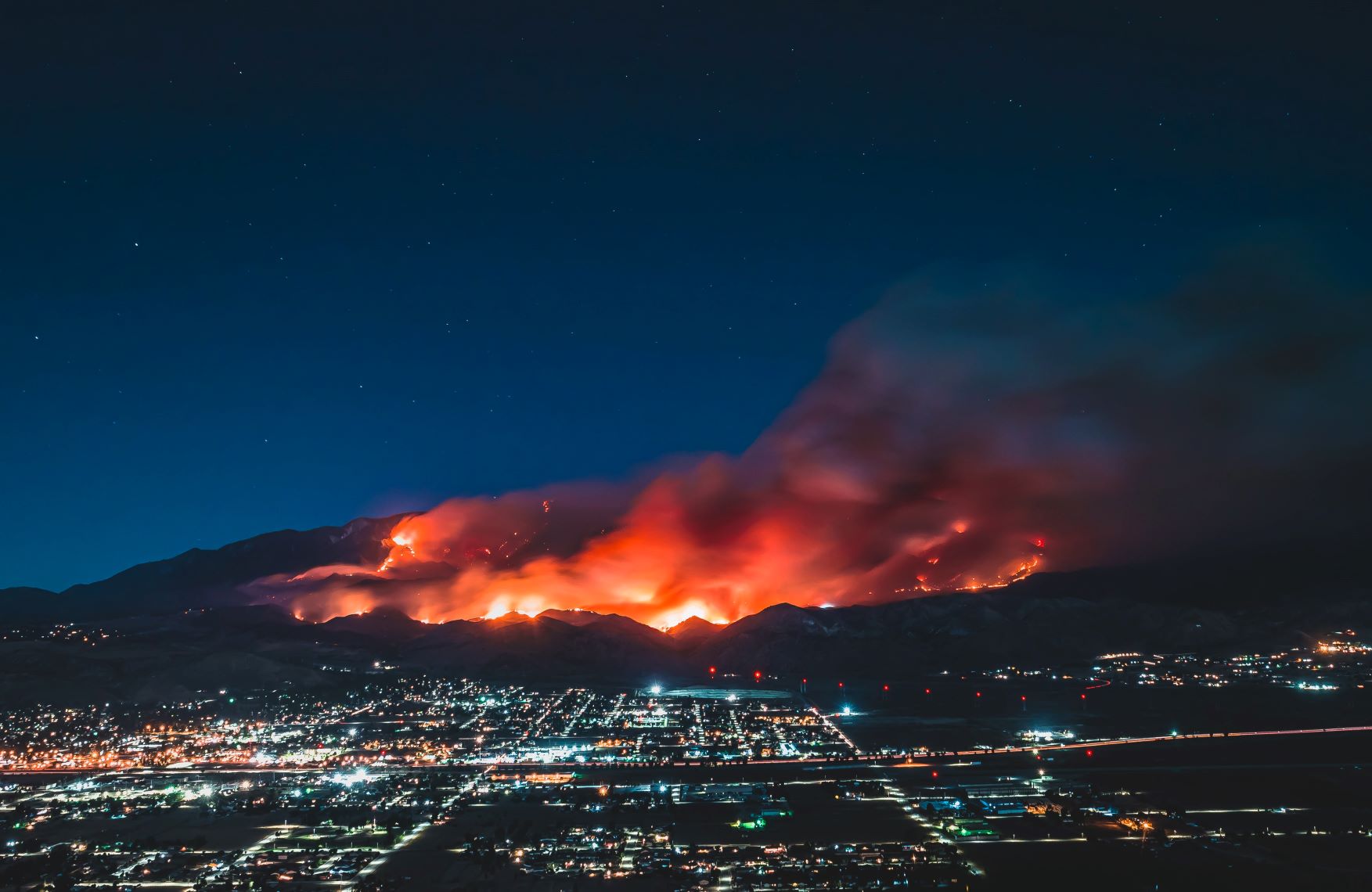If you’re paying attention to the news, even just a little bit, you’re aware of the explosion of wildfires ripping through California and the West Coast. While many of us worry for the West in the comfort of the rain and healthy air quality of our own climates, West Coasters in affected areas wake up and check the Air Quality Index daily before assessing the appropriate actions for the day.
In Portland, Oregon, the air quality reached 600 parts per million at one point, rendering it extremely hazardous to even step outdoors. California’s Route 1 was blocked off due to firefighting attempts. Sequoia National Forest, Yosemite, Big Sur and many other major attractions all closed their metaphorical doors to visitors as fires spread. The wildfires have burned over 3,627,010 acres of forest and 7,097 homes to the ground in California alone, forcing thousands of residents to evacuate and become climate refugees.
Regions in close proximity to the wildfires experience poor air quality due to the drifting smoke. If the fires continue to spread, their lives and land are at risk of burning. Yet, leaving is not an appealing option either.
Juan Pablo, who works on a live-in CBD farm and fruit orchard in Santa Cruz county, has worked through poor air quality conditions. When asked when he would consider leaving, Juan Pablo replies simply, “I guess when I can’t breathe.” For weeks, the Santa Cruz county AQI teetered between “Unhealthy” and “Hazardous,” but according to Juan Pablo, “We’ve been here with pretty bad quality, coughing.” The smoke hasn’t driven him away yet.
If the air quality in many western regions of the country is poor enough to cause wheezing, it certainly begs the question: Why don’t people just leave? Obviously, leaving one’s home is complicated, and the ability to do so is not a privilege afforded to all.
“For me, leaving would be easier than [for] other people because I don’t possess anything here … we insist on holding onto everything as if our lives are dependent on it, but they aren’t,” says Juan Pablo.
Juan Pablo’s wisdom isn’t so easy to apply in practice, though. Staying put isn’t just about land ownership; the reluctance to leave is tied to family situations, job security and local networks. Carlos, a resident of Santa Cruz, expressed his reluctance to evacuate if need be.
“It would be hard for me to leave. Santa Cruz is a beautiful place, and where else would I go?” he says. The question is not rhetorical. Carlos’ family all live in central California, in locations experiencing similar air quality issues and wildfire hazards.
“We had friends evacuate to Oregon, and then it caught on fire, so, yanno,” says Carlos with a laugh, emphasizing the way that the extensive network of fires have left few places to easily escape to.
When asked again what was keeping him in Santa Cruz, though, Carlos responds without hesitation, “job security.”
In the grand scheme of things, Carlos considers himself lucky because he works indoors from home where the air quality is always safe. “It’s hard for the farmworkers, ‘cos they’re working out in the smog,” says Carlos shaking his head sadly.
But is he worried about the encroaching blazes? “Absolutely. I’m very worried,” Carlos says.
Megan, his partner, is tied to the dry, smoky region by familial relationships. “My situation’s a little different because I share custody of a child, so I can’t just pick up and leave,” she explains. “Plus, our families are here.” For these reasons, Carlos and Megan have no plans to leave Santa Cruz.
Megan works for a home insurance company, though, and has thus witnessed the aftermath of the wildfires firsthand.
“Insurance is supposed to rebuild what was there, but what was there burned down. It doesn’t make sense to rebuild exactly the same thing in the same place,” Megan says. However, this is exactly what is occurring. Homes in fire-prone areas are burned down by wildfires and rebuilt in the same locations without fire protection in a continually destructive cycle.
In December of 2019, Insurance Commissioner Ricardo Lara issued a moratorium on companies canceling or not renewing home insurance policies. The moratorium protects homeowners in fire-prone regions from losing their insurance, but it will expire on Dec. 5 of this year.
“After that, insurance companies will have lost all their money rebuilding from the fires and they can’t keep insuring these areas. With climate change, [fire season’s] not going away,” Megan says.
There is no moratorium on wildfires. Rising temperatures and droughts induced by climate change will continue to exacerbate fire season in years to come. If insurance companies choose not to renew policies in fire-prone regions as Megan suspects, residents of these areas will have no choice but to become climate refugees and find homes in more secure regions.
The West Coast’s wildfires are just the tip of the iceberg. As climate change progresses, natural disasters of all sorts, including hurricanes, extreme droughts and more will create millions of climate refugees.
Someday soon we might all find ourselves asking the questions Californians are asking themselves: Where would we go? What are we leaving behind? What will happen if we stay?

















